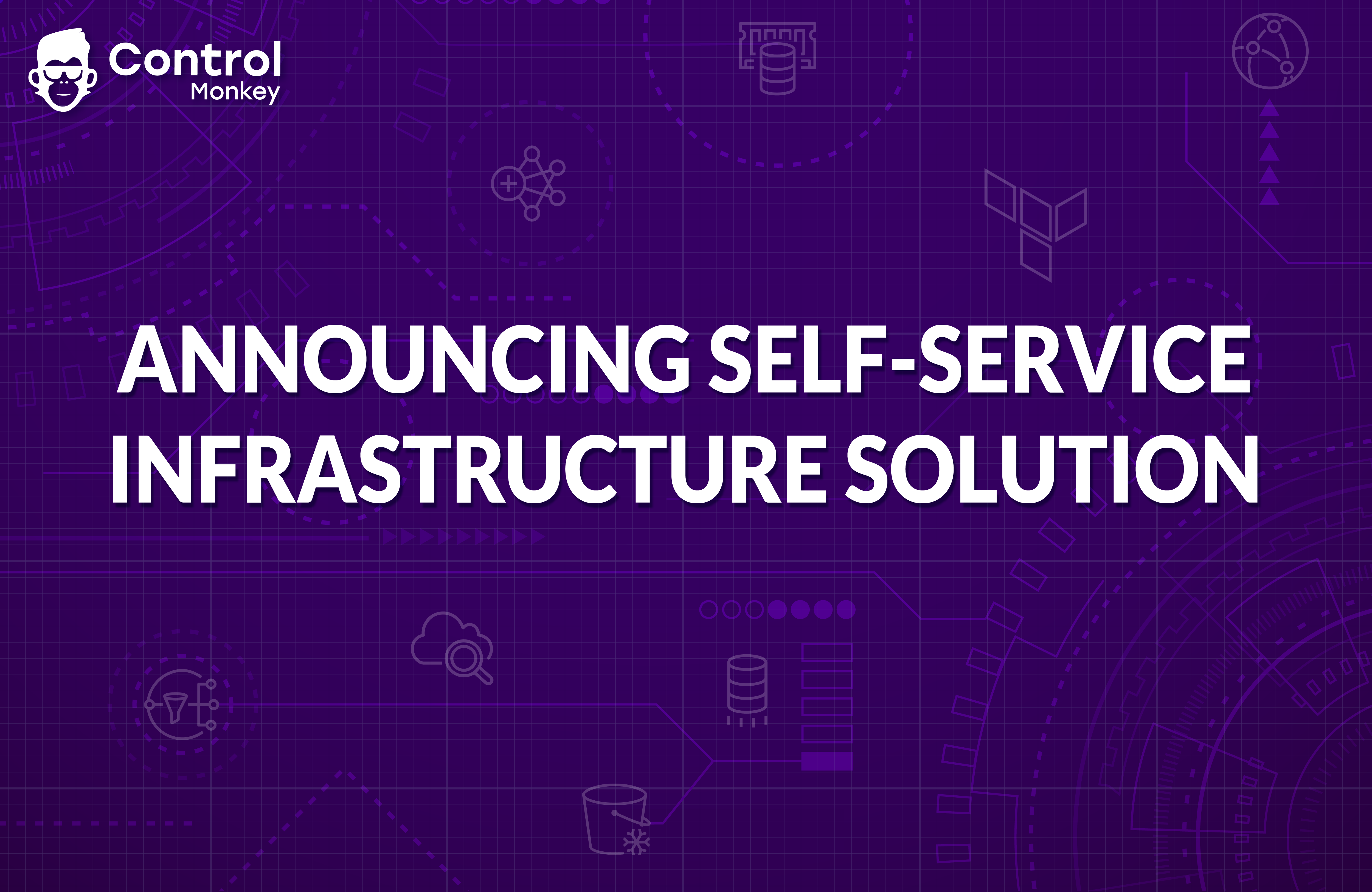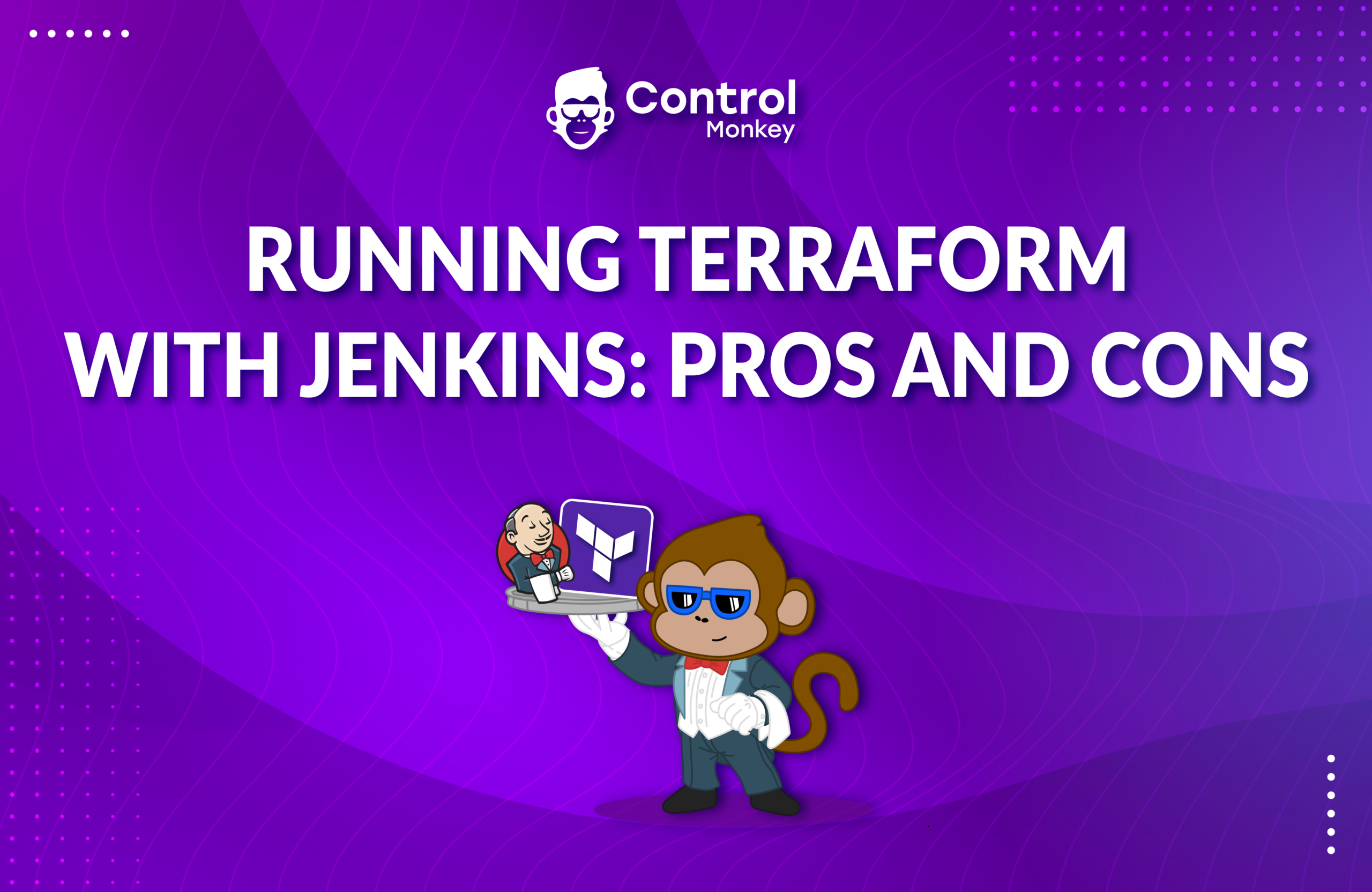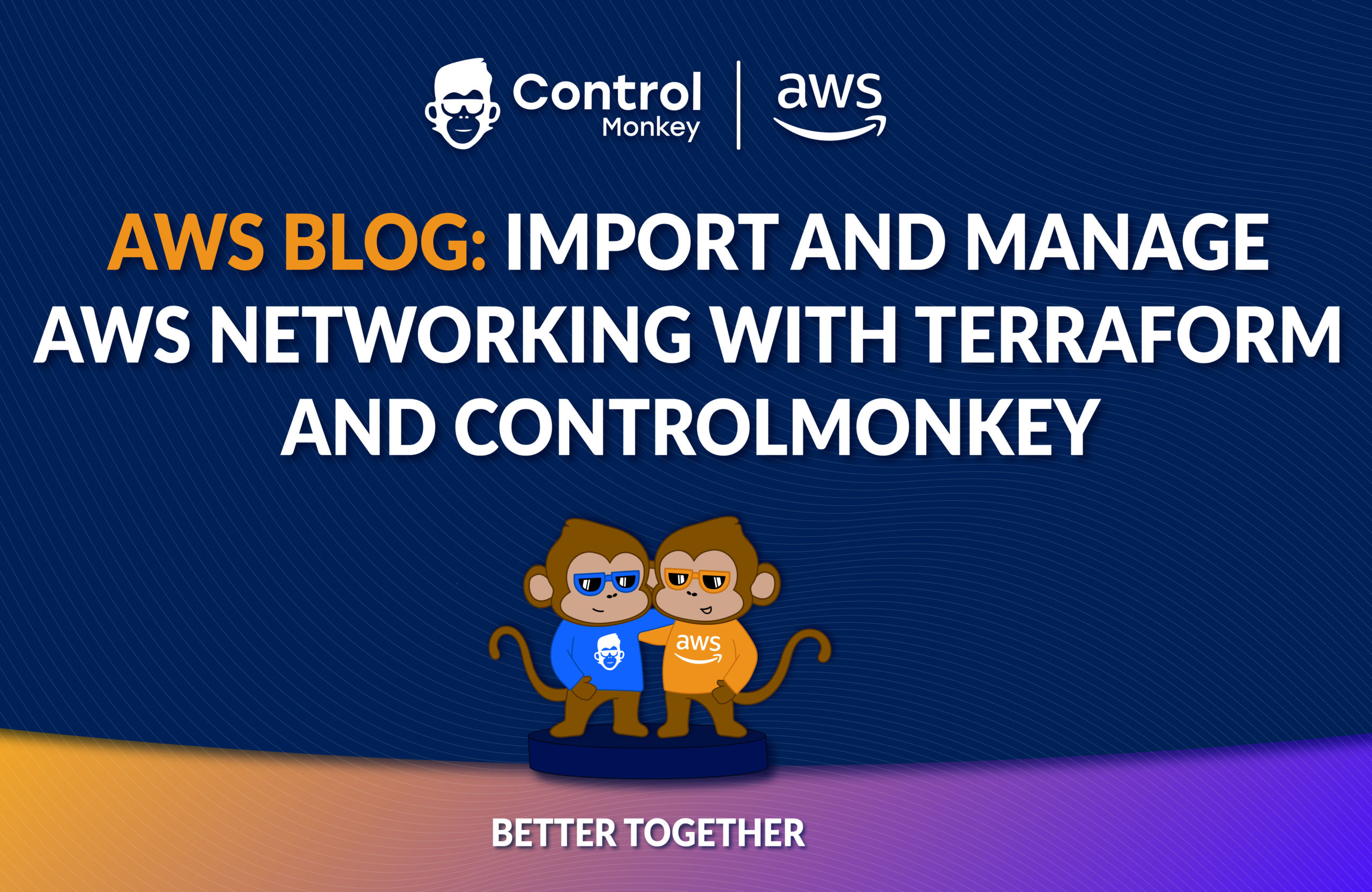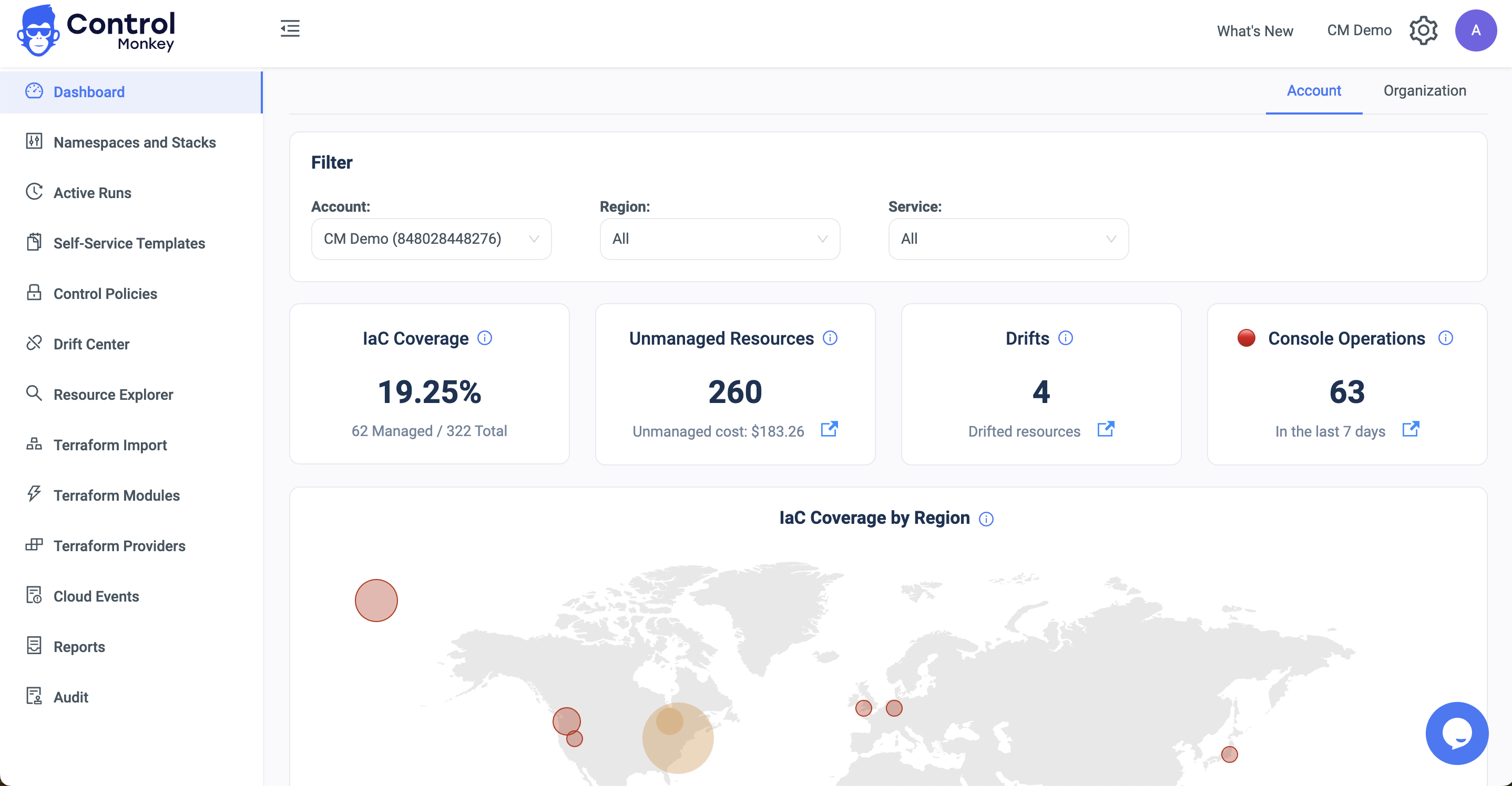Intro
Today we are proud to announce the official launch of our newest solution to the ControlMonkey platform.
Self-service Infrastructure allows other teams such as Dev, QA, or Sales to launch pre-defined cloud environments in minutes, from a centralized source of truth.
Rather than having your DevOps team manually spin up Infrastructure and follow up on Jira tickets, with ControlMonkey’s Self-service Infrastructure, other teams can easily provision cloud resources on their own, under DevOps rules to maintain governance and control.
Self-service Infrastructure has 2 modes of operation which I will talk about.
Mode 1: Ephemeral Environments
The first mode of operation is intended for ephemeral (temporary) environments that are required by other teams in the organization, especially by developers and QA.
Oftentimes developers need temporary cloud environments in order to run and test the code that they are developing.
Most developers are not familiar with Terraform code and don’t have access to the cloud vendor console, therefore they are reliant on the DevOps team to spin up Infrastructure for them.
The whole process of requesting Infrastructure by opening Jira tickets to the DevOps team is a long and tedious operation that can be easily solved.
With ControlMonkey, DevOps teams can define and prepare self-service templates (blueprints) that can be used by other teams to launch ephemeral cloud resources.
Besides a pre-defined TTL (time to live), the end-user can also enter variables (which are also governed by the DevOps team) to customize the environment based on his needs.
Self-service Infrastructure by ControlMonkey enables DevOps teams to:
- Free their time from handling Infrastructure-related Jira tickets and focusing on more strategic tasks.
- Save on Infra costs by setting a clear TTL on each environment and proactively prevent costly mistakes
- Enable agility and improve productivity without sacrificing control and governance.

Mode 2: Persistent Environments
The second mode of operation is intended for Persistent (Permanent) environments that are consistent with no pre-defined TTL (time to live).
This use case is intended mostly for DevOps teams wishing to launch additional cloud resources into an existing cloud environment. We provide a governed way for provisioning resources without having to be familiar with the Terraform Git repo structure, and which Terraform modules are being used by the organization.
If for example, you want to give your team an easy way to provision a new S3 bucket that will meet the organization’s compliance requirements, with ControlMoneky it’s fairly simple.
The only thing required is to define a ‘template’ folder in the Git repository with the Terraform code that provides a compliant S3 bucket.
Now when a user wants to provision new resources from that template, ControlMonkey takes the template Terraform Code, copies it to a predefined path in the Git repo, generates a Pull Request, and notifies the DevOps team that a new resource is waiting to be provisioned.
The advantage of launching cloud services through ControlMonkey’s Self-service is that not only do you save time, but you also flatten the learning curve when it comes to contributing infrastructure to production.
Summary
ControlMonkey enables your team to create, organize, and govern a pre-approved catalog of cloud resources that can be shared across multiple teams and launched whenever needed.
ControlMonkey’s Self-service Infrastructure solution gives your DevOps their time and productivity back, without compromising an inch on Security and Compliance.
Want to learn how top DevOps teams are managing their infrastructure?
Book a 30-minute demo with us and learn how the ControlMonkey platform helps implement a proactive DevOps strategy and prevent 90% of Production issues.














